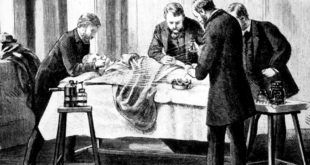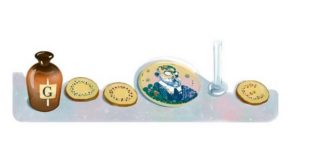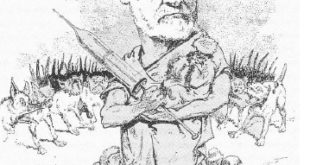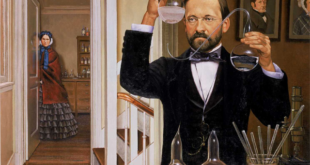This article was originally published in the Pharmaceutical Journal and Transactions, August 4, 1877, pp. 89-90
The hope that, for once, a dispute between scientific men on a point of fact might be settle rationally, and that it would be conclusively ascertained whether Dr. Bastian was right in affirming, or M. Pasteur in denying, that bacterial will swarm in previously boiled urine, after being exactly neutralized by pure caustic potash and carefully protected from contamination, has been rudely dashed to the ground by an announcement just made. It will be remembered that in order to decide between the disputants a commission consisting of Messrs. Dumas, Milne-Edwards, and Boussingault was appointed by the French Academy of Sciences. The miscarriage of proceedings of this Commission, as described by Dr. Bastian, is certainly very ludicrous.
Learning from the Compte Rendu of the sitting that the Commission had been appointed, Dr. Bastian wrote on the 27th of February to M. Dumas, offering to go to Paris for three days tat a convenient time to perform his experiments before the members. The reply to this letter appears to have miscarried, for on the 5th of May Dr. Bastian received a letter–that had been misdirected,–referring to one that had been sent three weeks earlier but not received, reiterating that the Commission were ready to receive Dr. Bastian, and that the laboratory of the Ecole Normale or any other that he chose would be placed at his disposal. To this Dr. Bastian replied, asking for the purport of the missing letter, and saying that in consequence of the delay that had occurred he would not be able to visit Paris until the third week in July. Upon receiving a duplicate copy of the missing letter, Dr. Bastian considered it not to be sufficiently explicit as to the limits of the inquiry. He therefore wrote back to say that he considered the essential condition of the inquiry to be,
“whether previously boiled urine, protected from contamination, can or cannot be made to ferment and swarm with certain organisms by the addition of some quantity of liquor potasse which has been heated to 110°C. for twenty minutes at least.”
An extension of the inquiry to the theoretical bearings of the experiment he refused to entertain on the ground of the brief time at his disposal. No objection was made to these restrictions, but after a month had passed without reply, Dr. Bastian wrote asking for the assurance he required, to which M. Dumas answered that the Commission would be at his disposal on the 15th of July, and that if possible it would only occupy itself with the subject of urine treated with potash. This did not satisfy Dr. Bastian, and he again wrote, asking for a more explicit statement. M. Dumas replied as follows:
“The Commission desires, like yourself, that the investigation should be limited to the point in discussion between you and M. Pasteur. It would be only in the case of your desiring to go further that it would have to see whether the time would permit more being undertaken, your visit being short.”
After this preliminary epistolary skirmishing, Dr. Bastian went to Paris. Upon his arrival, he found that one member of the Commission, M. Boussingault, could not attend, and that another, M. Milne-Edwards, would not, unless the Commission were allowed to vary the experiments at discretion. Dr. Bastian then suggested that at present his experiment should simply be repeated, and that he should visit Paris again, if any variations were considered necessary. A new member of the Commission, M. Van Tieghem was then appointed by the Academy.
The last act of this comedy was equal to anything that went before. It having been arranged that the experiments should be performed in M. Pasteur’s laboratory, the disputant and M. Van Tieghem were there at the appointed time. Next M. Millne-Edwards arrived, but, learning then for the first of the compromise, he at once left the laboratory, followed by M. Van Tieghem. These gentleman appear to have waited for M. Dumas until they were tired, and then the former went away, and the latter returned to the laboratory. When M. Dumas arrived, he learnt that M. Milne-Edwards had left, so he went away also declaring the Commission at an end, without communicating with M. Van Tieghem, M. Pasteur, or Dr. Bastian. And then Dr. Bastian went home too.
 Pasteur Brewing Louis Pasteur – Science, Health, and Brewing
Pasteur Brewing Louis Pasteur – Science, Health, and Brewing 


